Interview with Secretary of State for Mineral Resources Jânio da Rosa Corrêa
Victor of Angola
The following are details of an interview with Secretary of State for Mineral Resources Jânio da Rosa Corrêa Victor of Angola.—Ed.
Question: The Government established a new governance model for the Mineral Resources, Oil and Gas sectors that allowed for the creation of the National Oil and Gas Agency, the National Mineral Resources Agency! What is your assessment of this statement?
Answer: The sector's new governance model allows for a better stratification and definition of the role of each entity in its governance structure, in matters relating to oversight, concession, regulation, supervision and operation.
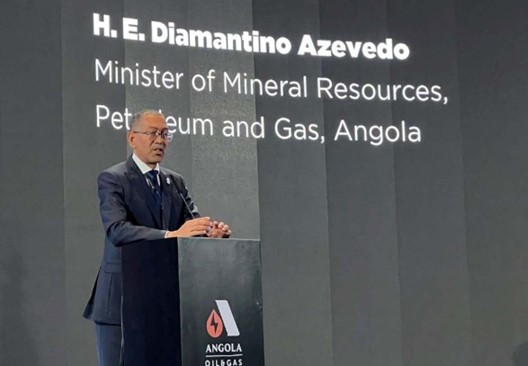
In 2019, a new governance model for the Oil and Gas sector was approved, and its implementation took place by the end of the same year.
For the oil and gas sector, the National Agency for Oil, Gas and Biofuels (ANPG), the National Concessionaire, was created to regulate, promote and supervise the execution of oil and gas activities in the upstream, and the Oil Derivatives Regulatory Institute (IRDP) to regulate and supervise the midstream and downstream segments. With the institutionalization of the ANPG and the IRDP, SONANGOL E.P. a state-owned company that was created shortly after the country's independence. It is currently undergoing a restructuring program so that the company can devote itself to its corporate purpose, which comprises the entire oil and gas value chain, including exploration, research, production, refining, transportation, storage, distribution and marketing of oil derivate products.
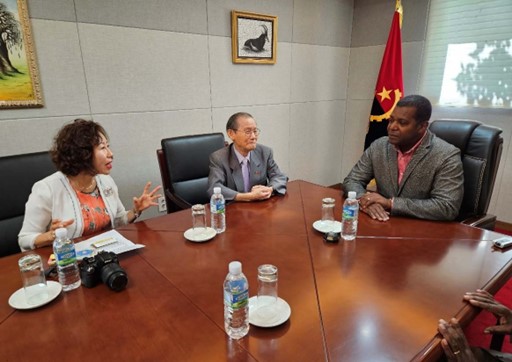
Sonangol's restructuring will culminate in the dispersal of part of its capital on the stock exchange, as soon as the minimum conditions are met.
Jânio da Rosa Corrêa Victor, Angola Secretary of State for Mineral Resources, with The Korea Post journalists at the Angola Embassy in Seoul
The transfer of the concessionary function from SONANGOL to the National Agency for Oil, Gas and Biofuels (ANPG) has made it possible to ensure greater political coordination between the institutions, eliminate any conflicts of interest, increase the transparency and efficiency of the processes, clarify the role of the public bodies involved in the sector and create attractive conditions for private investment in the national oil industry.
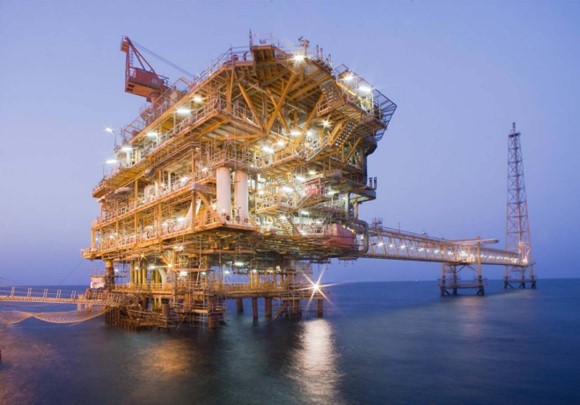
With the assumption of the role of National Concessionaire, Regulator and Supervisor, the ANPG has created greater rapprochement with the sector's stakeholders to jointly address critical aspects in order to improve the performance of the oil sector and make the Angolan industry an international benchmark and choice for investors.
The restructuring of the sector has brought with it other benefits, such as speeding up and reducing bureaucracy in contract approval processes, the implementation and operationalization of recent legislative reforms, with particular emphasis on the laws on gas, marginal fields, exploration within development areas and abandoned fields.
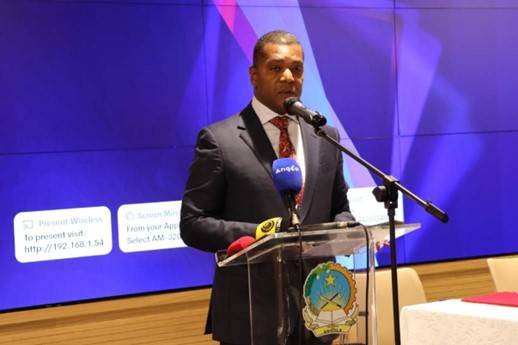
The reinforcement of SONANGOL's role was aimed at making it a more efficient company, prepared to increase domestic refined products production capacity in order to reduce dependence on imports, while also making it possible to consolidate the integration of various business segments.
Q: What progress has been made and what have been the setbacks, the advantages for Angola's international partners who have maintained relations with the sector, as well as for those who wish to invest in the country?
A: In recent years, Angola has made significant progress in the oil sector, evidenced by the participation of major companies and multinationals in investments made in new exploration projects and development of new fields on and off-shore.
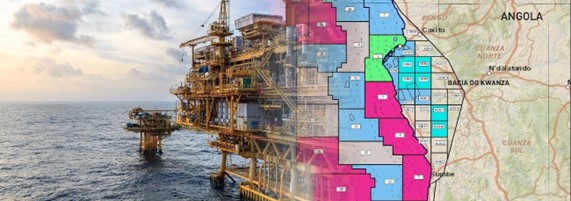
Jânio da Rosa Corrêa Victor, Angola Secretary of State for Mineral Resources, for the Ministry of Mineral Resources, Oil and Gas
At the same time, reform measures have been implemented to improve efficiency and transparency in the local extractive industry. These advances have attracted international partners and increased Angola's competitiveness in the global market
However, we recognize that the sector is facing some challenges derived mainly from exogenous factors. For example, the fall in the prices of the main products has negatively affected our economy, resulting in financial difficulties for the implementation of various projects already approved and a reduction in investments.
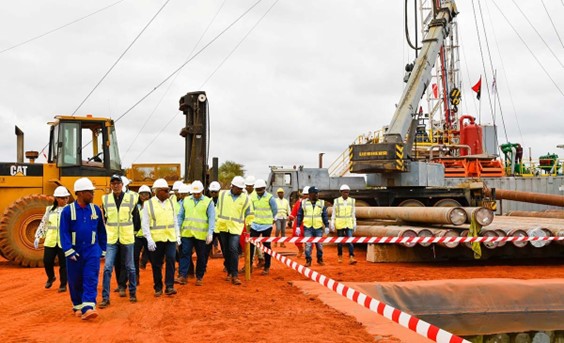
Despite the challenges, there are significant advantages for the international partners that maintain relations with the sector, embodied in a favorable business environment, a regulatory framework in line with the best practices in the world and a vast untapped potential for mineral resources, which provides confidence for investors and new investment opportunities.
Now, the outlook for Angola's extractive industry is promising. The country is taking steps to diversify its economy and reduce its dependence on oil, investing in sectors such as agriculture, tourism and renewable energies.

The discovery of new resources, together with improved management and transparency in the extractive industry, will contribute to the sector's sustainable growth and make the country a regional power.
Q: What are the main structuring projects underway at the Ministry of Mineral Resources, Oil and Gas?
A: In the mining sector, there are a number of projects that will soon be inaugurated and others that, due to their magnitude and importance, will be crucial to the country's economic development, increasing the mining sector's contribution to the national GDP.
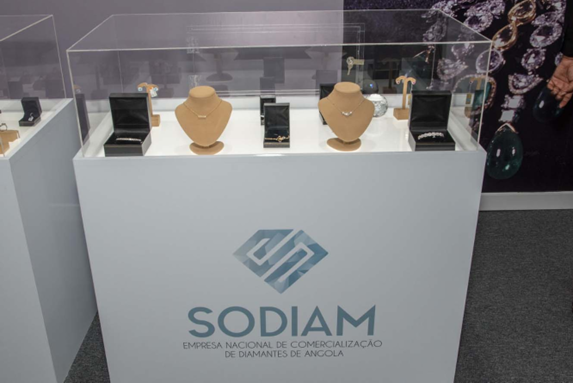
These are projects in the diamond subsector, mining, polishing and the implementation of the diamond exchange; gold production and refining projects; iron mining and steel mill; copper ore production projects; phosphate rock production and fertilizer plant; as well as the construction of higher technical institutes.
In the oil sector:
Alongside the construction of three refineries, namely in Lobito, Cabinda and Soyo, special attention is being paid to marginal fields that will make the decline in production less accentuated.
Also, with this in mind, the first deepwater oil project is to be launched in the Kwanza basin
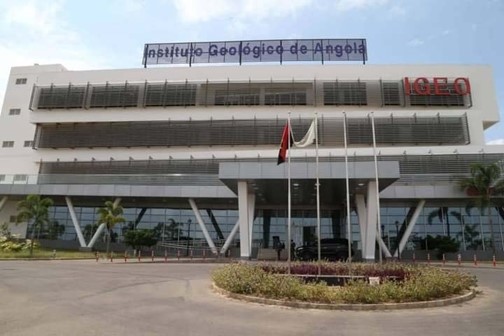
Thanks to the new legislation, projects will be developed to progress the production, treatment and supply of non‐associated natural gas.
The construction of the Ocean Terminal at Barra do Dande (TOBD), in Cabinda and the expansion of the Lobito Terminal will not only make it possible to store fuel, but will also serve to export oil.
Green hydrogen will be produced with an initial capacity of 280,000 MT of ammonia per year.
Finally, SONANGOL's Research and Development Center will contribute to research not only into renewable energy sources, but also into so‐called "critical minerals" for the energy transition.
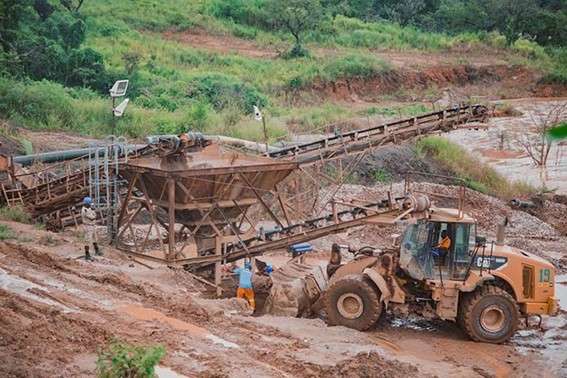
Q: We know that in 2021 the Diamond Development Pole was inaugurated in Lunda Sul Province. In the context of the diversification of the Angolan economy, what important role is reserved for the pole and what are the prospects for setting up other poles in other provinces of Angola?
A: The Saurimo Diamond Development Pole plays a key role in the strategy to diversify mineral production, covering the last part of the value chain dedicated to mineral processing, in this case, polishing. Here we are dedicated to training young professionals in the construction and development of technical skills, using the Technical‐Vocational Training Centers, owned and managed by ENDIAMA and SODIAM, respectively. These vocational training centers train young technicians professionally who, once they have finished their training, will be able to find employment in companies that make up the diamond industry, but also in other places outside the diamond industry, or even become self‐employed.
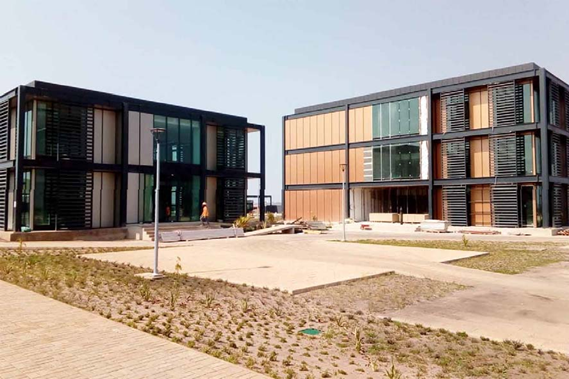
Angolan National Diamond Trading Company
In the past, most Angolan diamonds were exported in rough form. Our legislation provides for up to 20% of diamond production to be polished in Angola, which will be a great incentive for the jewelry industry that we want to set up in Angola. I would like to point out that at the moment we are well below that quota, so there is the possibility of receiving many more investors who want to invest in this segment.
The Saurimo Diamond Development Pole has the function of promoting diamond cutting and polishing activity in Angola, adding as much value as possible to its production, consequently creating more jobs specifically for local Angolan youth. It is hoped that in the future this Pole will become a world‐class center where private national and foreign companies interested in adding value to the Angolan diamond value chain can develop with the existing infrastructures that have been built to the highest standards necessary for the business to develop with due sustainability and success.
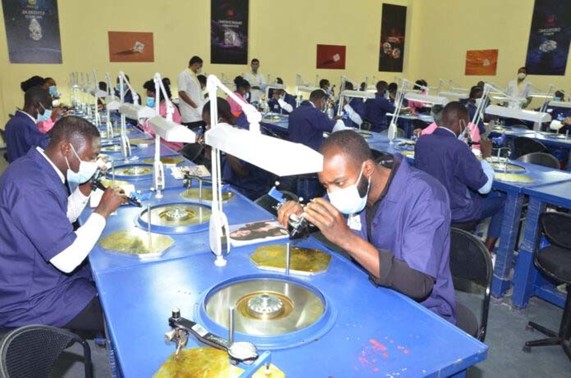
We are planning to build a new Diamond Development Pole in the province of Lunda Norte, a province also known for its diamond production, and incidentally the first province where the first diamond was found and where this industry was launched.
Q: Within the framework of Angola's national development strategy and the economic diplomacy carried out by the current Angolan government, what prospects and opportunities are there for a robust commercial partnership between Korea and Angolan companies in the areas of oil, gas and naval infrastructure construction?

A: The commercial partnership between South Korean and Angolan companies in the oil sector can be strengthened given that Angola is the second largest producer of hydrocarbons in the sub‐Saharan African region and one of the most important African countries in the struggle for regional peace and security. Angola's oil reserves offer international investors various business opportunities in the fields of exploration, production and refining. South Korea is a traditional buyer of crude oil from Angola and has shown interest in investing in the exploitation of our country's natural resources, including oil and gas.
Within the scope of bilateral cooperation in the oil field, the first Memorandum of Understanding between the Republic of Angola and the Republic of South Korea was signed on October 12, 2006, between the former Ministry of Petroleum of the Republic of Angola and the Ministry of Trade, Industry and Energy of the Republic of South Korea.
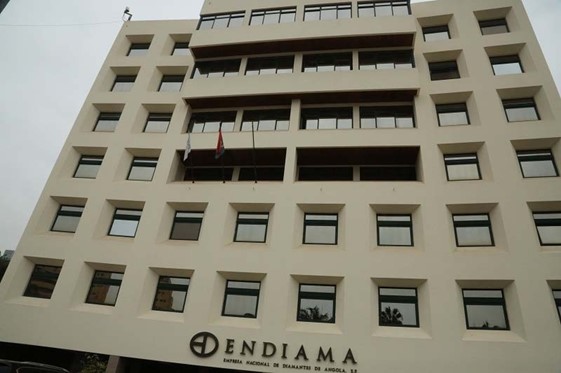
At present, cooperation in the oil sector between the two countries focuses essentially on the marketing of crude oil, training, the provision of services, the exchange of experiences, attracting and promoting investment and the construction of oil tankers.
Sonangol has taken the opportunity to restructure its maritime fleet, with the support of South Korea, which is a leader in the construction of naval infrastructure. In November 2022, Sonangol signed an agreement with the Korean company Hyundai Samho Heavy Industry, which resulted in the construction of two large Suezmax tankers with a transport capacity of one million barrels of oil per unit. They reinforce SONANGOL's international fleet of nine ships, each of which acts as a business unit. The two ships, named Sonangol Kulumbimbi and Sonangol Njinga Mbande, were delivered to Sonangol in ceremonies held on April 10 and September 12, 2023, respectively, in the South Korean city of Mokpo.
In short, Angola has abundant natural resources and Korea has cutting‐edge technology, capital and excellent human resources. Cooperation between the two countries in the hydrocarbons and minerals sector can therefore create space for Korean companies to enter the entire value chain of these resources.
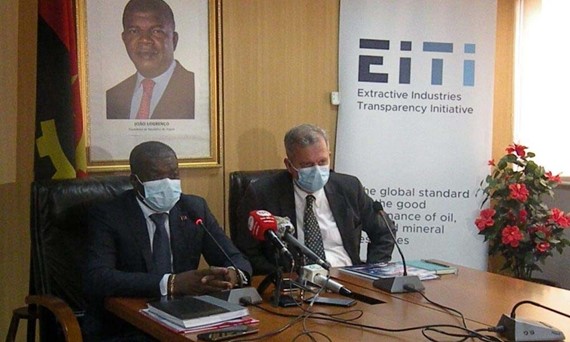
Q: We know that last year IGEO signed a memorandum of understanding with the South Korean company AKEDA. What does this agreement consist of and how is it materializing?
A: The memorandum between IGEO and AKEDA consists of the parties carrying out a set of research projects aimed at exploring world‐class mines in Angola, mainly for metals.
The parties have taken a number of steps so far, culminating in the appointment of focal points and the creation of a technical working group, identifying the priority actions to be carried out.
Q: What contributions can Korean companies make to the materialization of MIREMPET's Sectorial Development Plan and in what areas?
A: Bearing in mind that Korean companies offer advanced technologies and experience in various fields, which is an asset for Angola, the country can take advantage of this South Korean potential to promote projects that contribute to its socio‐economic development.
Angola has been investing in the creation of cutting and polishing diamonds plants around the country
MIREMPET's Sectoral Development Plan should provide for the implementation of various initiatives, both for the Mineral Resources Subsector and for the Oil and Gas Subsector.
With regard to the mining sector, the aim is to develop its multiple mineral value chains, with emphasis on the prospecting and production of diamonds, gold, ornamental stones, phosphates, potassium, limestone, iron ore, copper, rare earth elements, nickel, lithium and various critical minerals for the energy transition, allowing the private sector, including South Korean companies, to participate in the business opportunities that arise.
In this sense, Korean companies are also invited to take part in mineral processing activities, such as diamond polishing, gold refining, the steel mill and ornamental stone processing, as well as other industries that can add value to the country's mineral resources.
With regard to the oil sector, there are several investment opportunities for Korean companies, both in the upstream segment and in the mid and downstream segments. In the upstream segment, with the implementation of bidding rounds and the exploration of new resources, a number of investment opportunities arise for the exploration and production of crude oil and natural gas. In the midstream and downstream segments, Korean companies will be able to create public‐private partnerships to participate in the implementation of the refining and petrochemical strategy in the country, in the activity of expanding storage capacity, distribution of refined products, or even investing in areas of renewable energies and other green technologies.
We know that Angola has oil, diamonds and other natural resources. Many companies and entrepreneurs have appeared in South Korea interested in these important raw materials from Angola. Can you tell us what mechanisms exist for these products to be marketed and/or acquired by the South Korean market?
For the diamond trade, there is a set of laws and regulations that define the mechanisms for operating the trade, cutting and export of diamonds in Angola. Presidential Decree No. 175/18, of July 27, is the main law defined as the Diamond Trade Policy. There are also subsequent Regulations such as Presidential Decree No. 35/19 of January 31 and Presidential Decree No. 85/19 of March 21.
In practical terms, the investor or buyer can send a letter of intent to the Minister. The Minister in turn contacts SODIAM, which looks at the framework for buying diamonds, where special stones over 12 carats are auctioned off. All SODIAM clients are registered in a SODIAM database.
Q: Angola has recently managed to attract major global mining companies such as Anglo American, Rio Tinto and De Beers. What changes have been made to achieve this?
A: In the 2017-2022 legislature, we first improved the quality of geological information by continuing to implement the National Geology Plan, which we call "PLANAGEO". With PLANAGEO we were able to cover the entire country with aerial geophysics using magnetic and radiometric methods. Based on these data sets and integrated with higher quality geological data, the large companies mentioned above and other junior companies that entered the country were able to select areas with geological and mineral potential.
In addition to the above, we would highlight the legislative and institutional reforms carried out during the previous legislature, which resulted in an improvement in Angola's business environment. Here we cite the New Governance Model for the Mining Sector.
The environmental effects of mining can occur on a local, regional and global scale through direct and indirect mining practices. What measures has Angola taken to protect itself against this?
Angola has a fairly robust and harmonized environmental regulatory regime, especially between the mining sector and the environment sector. This regime includes environmental management instruments set out in the country's Mining Code and is complemented by various environmental regulations on the obligation to carry out environmental impact studies (EIA) and the respective Environmental Licensing for all mining projects.
Mining companies must have their own environmental management and operational safety plans, which include: Operations Mitigation and Monitoring Programs, Water Use and Chemicals Plans, Emergency Prevention and Response Plans with the appropriate Risk Analysis, Environmental Audits, Mine Abandonment and Waste Treatment Plans, among others.
Mining companies are frequently subjected to inspections by MIREMPET and other state bodies to assess the degree of compliance with the law and the implementation of internationally accepted good environmental practices. These actions and measures are applied to both the industrial exploitation of mineral resources and the semi‐industrial exploitation of diamonds.
As part of its duties, MIREMPET has regularly promoted seminars/workshops and other training events to discuss industry issues, exchange experiences and provide continuous improvement for workers.
We need to increasingly improve our professionalism and ability to exploit our mineral resources in a more efficient and sustainable way, taking into account the new paradigm of the energy transition.
Q: The Angolan government applied in 2020 and was subsequently admitted as a full member of the Extractive Industries Transparency Initiative (EITI). Can you tell us what importance or added value this membership has for increasing your country's credibility? What procedures did you have to follow?
A: Angola, as Africa's second largest oil producer, is committed to improving transparency in the extractive sector and joined the EITI on June 16, 2022, becoming the 57th member country of this institution and the 28th in Africa.
By joining, Angola has the opportunity to use the implementation of the EITI to reinforce its anti‐corruption efforts, strengthen reforms in the sector and ensure that the extractive sector contributes to domestic resource mobilization.
The implementation of the EITI is important not only for the market because it shows signs of seriousness and improves the reputation of companies, but also for the shareholder (in this case the Angolan state), it gives greater comfort to investors and also forces greater rigor in complying with legislation, thoughtfulness in decision‐making, discipline and dedication on the part of employees.In fulfilling its commitments following accession, Angola is working on the first EITI report, which is due to be presented on December 16, 2023.

